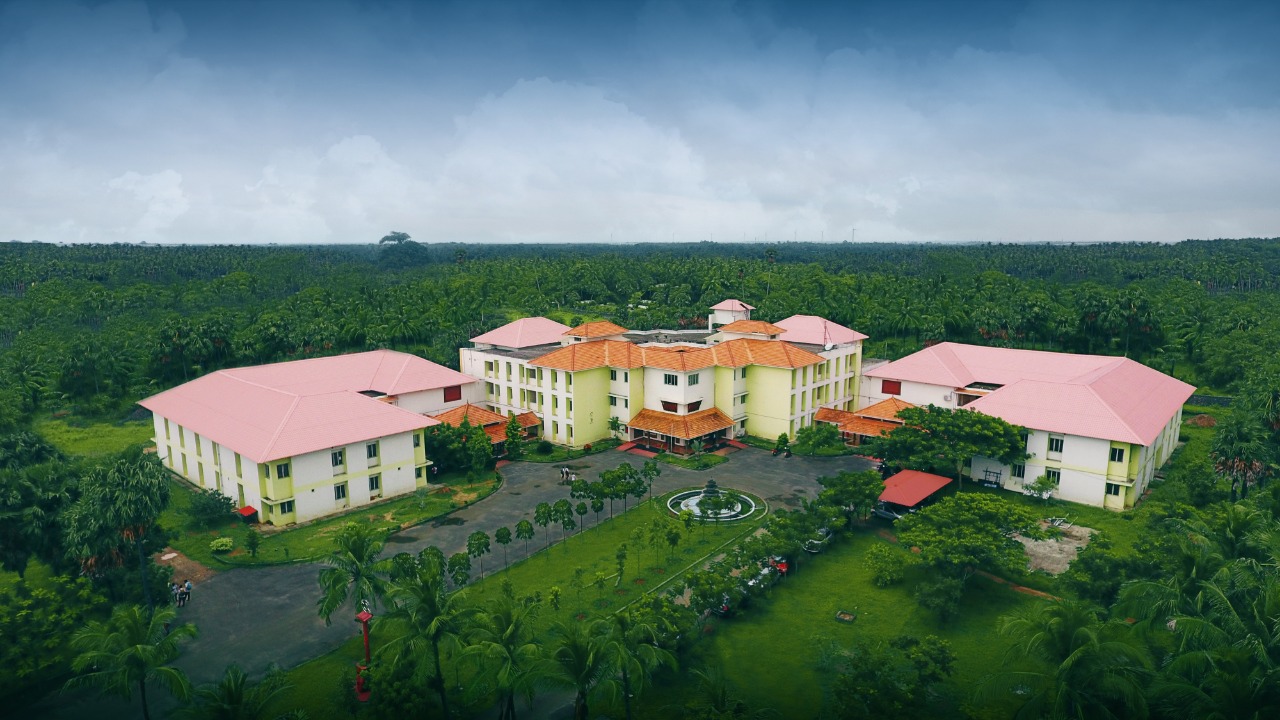
The Department of Computer Science and Engineering at the Ahalia School of Engineering and Technology, Palakkad was started in the year 2012 at the time of starting of the engineering college and provides an outstanding academic environment complimented by excellence in teaching. The department offers B.Tech degree. The Department has a comprehensive syllabus on topics covering all the aspects of computer hardware and software with an emphasis on practical learning. The course structure includes courses on latest topics to equip our students with the latest developments in computer science and engineering.
Vision
To develop computer science engineers with knowledge, computing skills and empowering them to excel in their profession through performance based learning contributing to sustainability, well-being of the society and professional ethics.
Mission
1. To implement effective outcome-based education that fosters the development of competent and skilled graduates, empowering them to promote and adopt sustainable practices.
2. To provide students with opportunities to engage in advancements in computer science and engineering through interdisciplinary research, collaborative projects that encourage innovation and entrepreneurship.
3. To cultivate a sense of ethics and emphasize awareness of social, legal, and professional conduct adhering to the standards of ethical and professional behaviour.
Programme Educational Objectives (PEOs)
PEO1
Demonstrate technical proficiency as computer professionals with the ability to solve diverse computational problems while upholding ethical values and professional behavior to contribute effectively to all domains.
PEO2
The graduates will cultivate the ability to adapt to emerging technologies and multidisciplinary environments, fostering innovation and entrepreneurship.
PEO3
The graduates will develop a logical mindset to design and implement computational solutions, working collaboratively to advance technological systems that align with principles of ethics and sustainability.
Programme Outcomes (POs)
PO 1: Engineering knowledge: Apply the knowledge of mathematics, science, engineering fundamentals, and an engineering specialization to the solution of complex engineering problems.
PO 2: Problem analysis: Identify, formulate, review research literature, and analyze complex engineering problems reaching substantiated conclusions using first principles of mathematics, natural sciences, and engineering sciences.
PO 3: Design/development of solutions: Design solutions for complex engineering problems and design system components or processes that meet the specified needs with appropriate consideration for the public health and safety, and the cultural, societal, and environmental considerations.
PO 4: Conduct investigations of complex problems: Use research-based knowledge and research methods including design of experiments, analysis and interpretation of data, and synthesis of the information to provide valid conclusions.
PO 5: Modern tool usage: Create, select, and apply appropriate techniques, resources, and modern engineering and IT tools including prediction and modeling to complex engineering activities with an understanding of the limitations.
PO 6: The engineer and society: Apply reasoning informed by the contextual knowledge to assess societal, health, safety, legal and cultural issues and the consequent responsibilities relevant to the professional engineering practice.
PO 7: Environment and sustainability: Understand the impact of the professional engineering solutions in societal and environmental contexts, and demonstrate the knowledge of, and need for sustainable development.
PO 8: Ethics: Apply ethical principles and commit to professional ethics and responsibilities and norms of the engineering practice.
PO 9: Individual and team work: Function effectively as an individual, and as a member or leader in diverse teams, and in multidisciplinary settings.
PO 10: Communication: Communicate effectively on complex engineering activities with the engineering community and with society at large, such as, being able to comprehend and write effective reports and design documentation, make effective presentations, and give and receive clear instructions.
PO 11: Project management and finance: Demonstrate knowledge and understanding of the engineering and management principles and apply these to one’s own work, as a member and leader in a team, to manage projects and in multidisciplinary environments.
PO 12: Life-long learning: Recognize the need for, and have the preparation and ability to engage in independent and life-long learning in the broadest context of technological change.
Programme Specific Outcomes (PSOs)
PSO1: Graduates will demonstrate the ability to logically apply, analyze, design, and develop software solutions to address various problems, contributing to the betterment of society and its evolving needs.
PSO2: Graduates shall leverage research, innovation, and appropriate technology across diverse programming domains.

